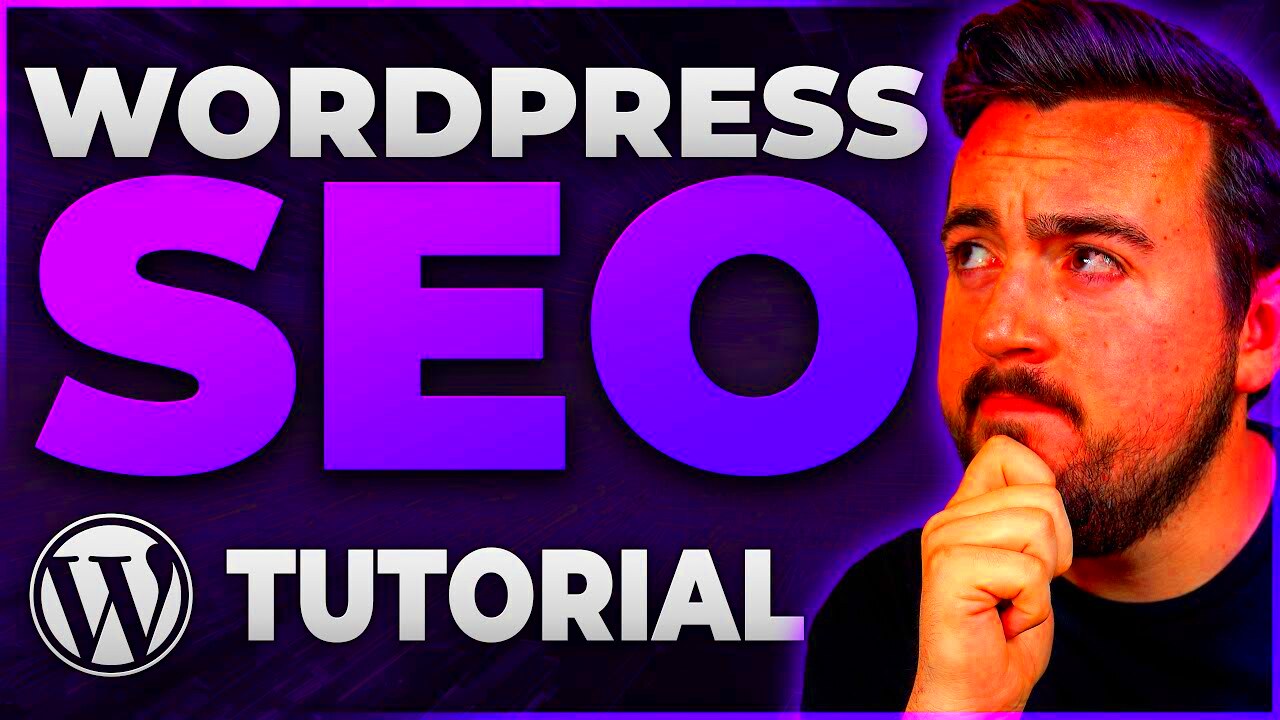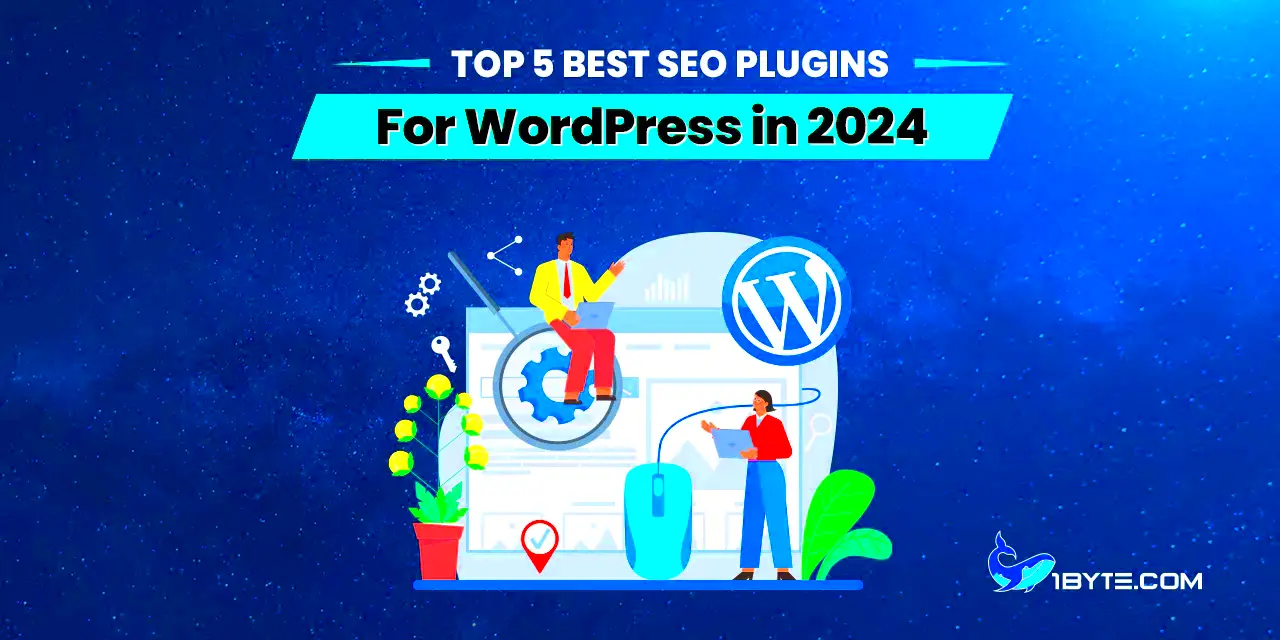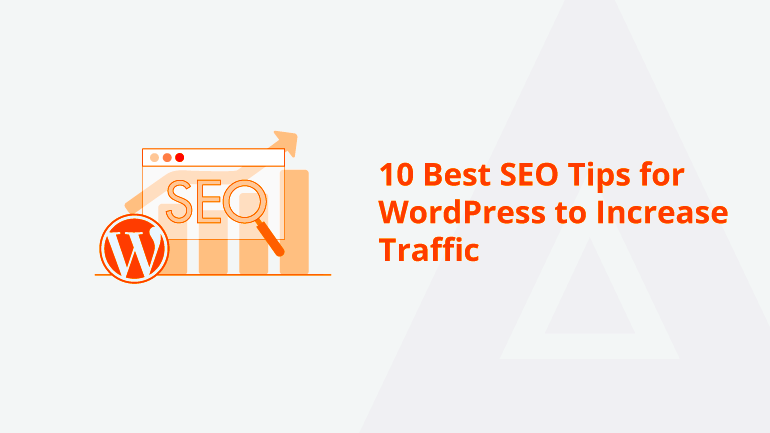In the ever-evolving world of digital marketing, SEO optimization has become a crucial factor for anyone looking to boost their online presence. If you’re using WordPress, you’re in luck! This platform is inherently SEO-friendly, but there’s always room for improvement. In 2024, following the right strategies can propel your website to new heights in search engine rankings. In this blog post, we’ll dive into effective tips and tricks to enhance your website’s SEO performance. Ready to make your WordPress site shine? Let’s get started!
Understanding SEO Basics for WordPress

Before diving into the advanced tactics of SEO optimization, it’s crucial to understand the basic concepts that underpin it. SEO, or Search Engine Optimization, is about improving your website’s visibility in search engine results. Here’s a breakdown of essential SEO basics specifically tailored for WordPress:
- Keywords: These are the phrases and terms that users type into search engines. Using relevant keywords in your content can help attract the right audience. Use tools like Google Keyword Planner to find popular search queries.
- Content Quality: Engaging, informative, and well-structured content is paramount. Search engines prioritize high-quality content that provides real value to users.
- Meta Tags: Make sure to utilize meta titles and meta descriptions for all your pages and posts. These tags provide a brief overview of your content, improving click-through rates.
- Alt Tags for Images: Utilize alt tags for your images to improve accessibility and give search engines context on what your images represent.
- URL Structure: Keep your URLs simple and descriptive. A clear URL can significantly affect SEO performance.
- Mobile Responsiveness: With an increasing number of users browsing on mobile devices, making your site mobile-friendly is essential for SEO success.
Armed with this basic understanding, you’re better prepared to implement effective SEO strategies on your WordPress website. Let’s dive deeper into tips and tools that can help you optimize your site even further!
Choosing the Right SEO Plugin for Your WordPress Site

When it comes to optimizing your WordPress site for SEO, picking the right plugin can make a world of difference. With so many options available, how do you choose the one that fits your needs best? Let’s break it down!
First and foremost, consider what features you actually need. Most SEO plugins offer a variety of functionalities, so it’s essential to select one that aligns with your goals. Here are some top contenders:
- Yoast SEO: This is one of the most popular plugins, known for its comprehensive on-page analysis. It provides real-time feedback on your content’s SEO performance.
- All in One SEO Pack: If you’re looking for a straightforward setup that’s beginner-friendly, this might be the perfect fit.
- SEOPress: A cost-effective option that includes many features without the need for additional plugins.
- Rank Math: Known for its intelligent automation, Rank Math helps streamline your SEO activities.
Next, think about usability. The best plugin is the one that doesn’t require you to become an SEO expert overnight. Check for an intuitive interface that allows for easy navigation.
Lastly, consider support and updates. An active development team is key to keeping your plugin secure and up-to-date with the latest SEO trends. Aim for a plugin that not only meets your current needs but also adapts to future changes in SEO best practices.
Keyword Research Strategies for 2024

Keyword research might seem simple, but it’s the backbone of effective SEO. In 2024, the game is changing with emerging technologies and user behaviors. Let’s dive into some fresh strategies to enhance your keyword game!
Start by utilizing advanced tools like Ahrefs, SEMrush, or even Google’s Keyword Planner. These tools can provide insights into search volume, competition, and related keywords.
Here are some modern keyword research strategies:
- Voice Search Optimization: With the rise of virtual assistants, optimizing for long-tail keywords has never been more crucial. Think about how people naturally speak.
- Trend Analysis: Use Google Trends to glean seasonal interest in specific keywords, helping you stay ahead of the curve.
- User Intent: Go beyond just the keywords. Understand the intent behind searches—whether they’re looking to purchase, learn, or navigate to a specific site.
- Competitor Analysis: Look at what keywords your competitors are ranking for. Tools like SpyFu can provide a glimpse into their keyword strategy.
Finally, always remember to keep updating your keyword strategy. The digital landscape is constantly evolving, and your SEO tactics should evolve right along with it. Stay flexible and be ready to adjust as necessary!
5. On-Page SEO Techniques for WordPress
On-page SEO is all about optimizing the content that’s on your website, making it easier for search engines to understand what you’re all about. When it comes to WordPress, there are some fantastic techniques that can help you climb the rankings in 2024 and beyond. Here’s a breakdown of effective on-page SEO techniques:
- Keyword Research: Start by identifying relevant keywords for your niche. Tools like Google Keyword Planner, Ubersuggest, and SEMrush can help you find keywords with high search volume and low competition.
- Optimize Titles and Meta Descriptions: Make sure to include your primary keyword in both the title and the meta description. This not only helps with search rankings but also improves click-through rates. Aim for a snappy meta description that appeals to readers.
- Use Headers Wisely: Use heading tags (H1, H2, H3) to structure your content. Your H1 tag should contain the main keyword, and subheadings should include variations to enhance readability and SEO.
- Image Optimization: Don’t forget images! Use descriptive filenames and alt text that contains your target keywords. This helps search engines understand your visuals and can improve your rankings in image searches.
- Internal Linking: Use internal links to connect related posts. This helps with navigation and encourages readers to explore more of your content, which can reduce bounce rates.
- Content Quality: Above all, provide valuable, original content. Search engines prioritize high-quality content that meets user intent. Regularly update your posts with fresh information.
By implementing these on-page SEO strategies, you’ll not only enhance your search engine rankings but also create a more engaging experience for your visitors!
6. Improving Site Speed and Performance
In today’s fast-paced digital world, every second counts—especially when it comes to your website’s loading speed. A slow website can deter visitors, negatively impact user experience, and ultimately hurt your SEO rankings. Here are some actionable tips to improve your site speed and performance on WordPress in 2024:
- Use a Reliable Hosting Provider: Choose a hosting solution that prioritizes speed. Managed WordPress hosting services often provide better performance than shared hosting options.
- Optimize Images: Large images can significantly slow down your site. Use tools like TinyPNG or plugins like Smush to compress images without sacrificing quality.
- Leverage Caching: Utilize caching plugins, such as W3 Total Cache or WP Rocket, to reduce the load on your server and speed up your site. Caching stores a static version of your site, which loads faster for visitors.
- Minimize HTTP Requests: Reduce the number of elements on your page—like scripts and stylesheets—to lower loading time. Combining files can also help achieve this goal.
- Implement Content Delivery Network (CDN): A CDN distributes your website’s content across multiple servers worldwide, ensuring quicker loading times for users, regardless of their location.
- Regularly Update Your Plugins and Themes: Outdated plugins and themes can slow down your site. Keep everything updated to improve performance and security.
By focusing on these strategies to improve your site speed and performance, you’ll not only create a better experience for your visitors but also enhance your overall SEO strategy in 2024.
7. Creating Quality Content that Ranks
Creating quality content is the cornerstone of any effective SEO strategy for WordPress. In 2024, it’s not just about filling your blog with articles; it’s about crafting well-researched, engaging, and informative pieces that meet the needs of your audience. Here are some essential tips to ensure your content not only resonates with readers but also ranks well on search engines.
- Understand Your Audience: Research your target audience to comprehend what they’re interested in. Use tools like Google Analytics or surveys to gather insights.
- Keyword Research: Identify relevant keywords that people are searching for. Tools like Ubersuggest and SEMrush can help you find keywords with high search volume and low competition.
- Write for Humans First: Your content should be engaging and easy to read. While SEO is important, don’t overstuff your articles with keywords. Make your primary focus creating value for your readers.
- Utilize Headers and Subheaders: Break up your content into digestible sections using H2 and H3 tags. This not only enhances readability but also helps Google understand the structure of your content.
- Add Visuals: Enhance your articles with relevant images, infographics, and videos. They make your content more engaging and can help reduce bounce rates.
- Encourage Interaction: Include calls to action (CTAs) that prompt readers to leave comments or share your post. This interaction can boost your visibility on search platforms.
Remember, consistently updating and improving your existing content is just as crucial as creating new posts. Quality content will not only attract visitors but will also help you establish authority in your niche. So, put your heart into your writing and watch your rankings rise!
8. Utilizing Structured Data and Schema Markup
If you want to give your WordPress site a solid SEO boost in 2024, utilizing structured data and schema markup is a game-changer. These tools help search engines understand the context of your content, ultimately making it easier for them to display your pages in relevant search results. Here’s how you can effectively leverage these technologies.
- What is Structured Data? Structured data is a standardized format for providing information about a page and its content. It helps search engines understand the content on your website and improve how it appears in search results.
- Why Use Schema Markup? Schema markup is a specific vocabulary of tags (or microdata) that you can add to your HTML. By implementing schema, you can enhance your listings with rich snippets, such as star ratings, product prices, and event dates.
- Types of Schema Markup: There are various types of schema markup you can utilize, including:
- Implementation: You can manually add schema markup to your HTML code. However, using plugins like Schema Pro or Yoast SEO can simplify the process and help you apply markups quickly.
- Test Your Markup: After implementing structured data, it’s essential to test your markup using Google’s Rich Results Test tool. This ensures everything is functioning as intended and eligible for rich snippets.
| Schema Type | Description |
|---|---|
| Article | Provides information about a news article or blog post. |
| Product | Highlights details about a specific product, including price and availability. |
| Event | Details the specifics of an event, including date and location. |
| Organization | Provides core information about your business or organization. |
By utilizing structured data and schema markup, you’re not just improving your chances of higher rankings; you’re also enhancing the overall user experience on your site. Take the time to integrate these tactics, and you’ll find that your efforts will yield significant results in 2024 and beyond!
Mobile Optimization for WordPress Sites
In 2024, mobile optimization isn’t just a bonus—it’s a necessity! With a majority of users accessing websites from their mobile devices, Google prioritizes mobile-friendly sites in its rankings. So, how do you ensure your WordPress site is ready for the mobile crowd? Let’s break it down!
First off, start with a responsive theme. A theme that adjusts flawlessly to different screen sizes is crucial. Here are some elements to consider:
- Responsive Design: Make sure your theme is built with responsive design principles, adapting content for phones, tablets, and desktops.
- Fast Load Times: Mobile users are often in a hurry, so optimize images and use browser caching to reduce load times. Tools like Google PageSpeed Insights can help you identify speed issues.
- Touch-Friendly Navigation: Links and buttons should be easy to tap. Ensure they’re adequately spaced and sized, so mobile users can interact without zooming in.
- Minimize Pop-Ups: While pop-ups can be effective, they can frustrate mobile visitors. Keep these to a minimum or ensure they’re easy to close.
- Test Your Site: Regularly check how your site looks on various devices using tools like Responsinator or BrowserStack.
Lastly, Google offers the Mobile-Friendly Test tool, helping you check whether your website meets mobile standards. With these adjustments, you can create a seamless experience for mobile users, boosting both engagement and rankings!
Building Backlinks Effectively
Backlinks are a cornerstone of SEO strategy, and in 2024, building them effectively can set you apart from your competition. But what does it mean to build backlinks the right way? Here’s a friendly guide to kickstart your efforts!
First, let’s make sure we understand why backlinks matter:
- Improved Authority: Quality backlinks from reputable sites enhance your domain authority, signaling credibility to search engines.
- Increased Traffic: Backlinks can drive referral traffic to your site, bringing new visitors eager to explore your content.
- Better Indexing: Search engines use backlinks to crawl your site more effectively, helping you achieve better visibility.
Now, let’s explore effective strategies for building those precious backlinks:
| Strategy | Description |
|---|---|
| Guest Blogging | Write high-quality guest posts for reputable blogs in your niche, ensuring you include a link back to your site. |
| Resource Page Link Building | Identify resource pages in your industry and suggest your content as a useful addition. |
| Engagement on Social Media | Promote your content on platforms like LinkedIn and Twitter, increasing your visibility and chances of being linked back to. |
| Networking | Engage with other bloggers and influencers in your niche, fostering relationships that can lead to link opportunities. |
Remember, the key to building backlinks is focusing on quality over quantity. Authentic, relevant links from authoritative sites will help your WordPress site thrive in search engine rankings!
11. Monitoring and Analyzing Your SEO Efforts
So you’ve put in the hard work to optimize your WordPress site—now what? Monitoring and analyzing your SEO efforts is crucial to understanding what’s working and what’s not. You wouldn’t drive a car without looking at the road, right? The same goes for your website!
Start by utilizing tools like Google Analytics and Google Search Console. These platforms provide valuable insights into your website’s performance. Here’s what you should keep an eye on:
- Traffic Sources: Where are your visitors coming from? Are they finding you through organic search, social media, or referrals?
- Keyword Performance: Which keywords are driving the most traffic? Look for opportunities to optimize based on this data.
- Bounce Rate: A high bounce rate may indicate that visitors aren’t finding what they expected. Consider revising that page!
- Conversion Rates: Are visitors taking the actions you want? Track form submissions, purchases, and other key interactions.
Don’t forget about tracking your backlinks! Tools like Ahrefs or SEMrush can help you monitor your link profile. A healthy backlink profile can boost your SEO significantly.
Lastly, it’s important to set aside regular intervals for analysis—monthly reviews work well. Diving into the numbers can illuminate patterns and help you tweak your strategy to better achieve those SEO goals!
12. Staying Updated with SEO Trends in 2024
In the fast-paced world of SEO, staying updated with the latest trends is vital. With algorithm updates, shifting user behaviors, and new tools emerging all the time, it can feel overwhelming. But don’t worry! Here are some strategies to help you keep your finger on the pulse of SEO in 2024.
- Follow Industry Leaders: Keeping tabs on respected figures in the SEO community can provide you with insights straight from the experts. Subscribe to blogs, podcasts, and newsletters.
- Join SEO Communities: Platforms like Reddit, Facebook groups, and LinkedIn can connect you with like-minded individuals. Exchange information, ask questions, and stay informed.
- Attend Webinars and Conferences: These events often showcase the latest trends and strategies straight from industry leaders. Plus, they’re a great networking opportunity!
- Read Case Studies: Understanding real-world applications of SEO strategies can offer insights into what works and what doesn’t—helpful when you’re prioritizing actions.
| Source | Type | Frequency |
|---|---|---|
| Search Engine Journal | Blog | Daily |
| Moz | Webinars | Weekly |
| SEO Round Table | News | Daily |
| Inbound.org | Community | Ongoing |
By routinely engaging with these resources, you’ll not only stay updated but also be better equipped to adapt your strategies in 2024. Remember, in the world of SEO, knowledge is power!
Conclusion: Your SEO Roadmap for WordPress
As we look to 2024, implementing effective SEO optimization strategies on your WordPress site has never been more critical. By staying ahead of the evolving trends in search engine algorithms and user behavior, you can ensure your content reaches the widest audience possible. Here are key points to remember as you craft your SEO roadmap:
- Keyword Research: Focus on long-tail keywords that align with user intent. Tools like Google Keyword Planner can help you identify trending keywords.
- Mobile Optimization: Ensure your site is mobile-responsive. With more users accessing content via smartphones, a mobile-friendly design is essential.
- Page Load Speed: Utilize caching solutions and image optimization to improve your site’s loading speed, enhancing user experience and ranking potential.
- Content Quality: Create high-quality, relevant, and engaging content. Content that answers user queries effectively tends to rank higher.
- SEO Plugins: Leverage SEO plugins like Yoast SEO or Rank Math for easily managing on-page SEO elements.
- Link Building: Develop a strategy for acquiring high-quality backlinks. Guest blogging and partnerships can be effective ways to build authority.
| SEO Activity | Frequency |
|---|---|
| Keyword Optimization | Monthly |
| Content Updates | Weekly |
| Technical SEO Audits | Quarterly |
| Backlink Analysis | Bi-Annually |
By implementing these tips and regularly reviewing your strategies, you create a robust SEO foundation for your WordPress site, allowing for sustained growth and visibility in the increasingly competitive digital landscape of 2024.



